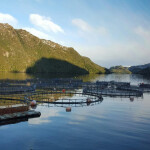This week, China’s Ministry of Health published a list of 17 chemicals and other substances that it has banned for use as food additives. The move comes just a week after the agency launched a four-month food-safety campaign in the wake of the melamine-tainted infant formula scandal.
Among the substances on the list, according to a report from China’s state-run Xinhua News Agency, are boric acid, lye and formaldehyde, which is added to water used to soak dried seafood to improve its appearance. But it’s carbon monoxide’s inclusion on the list that’ll really draw the U.S. seafood community’s interest.
Some processors use industrial CO on seafood to preserve and in some cases enhance a product’s color. The U.S. Food and Drug Administration requires all CO-treated seafood to be labeled as such, as it would for any other ingredient, but has taken no official stance on its use. The agency classifies “tasteless smoke,” a wood-smoke-filtration system that uses far less CO than traditional industrial CO methods, as “generally regarded as safe” (GRAS).
CO critics argue that the treatment deceives untrained seafood buyers and consumers into believing the product is fresher than it really is.
Opposition has been growing over the past few years. In July 2007, Rep. Bart Stupak (D-Mich.) introduced a bill that would not only require that CO-treated seafood, poultry and beef be labeled as such, a rule CO critics and lawmakers say is rarely enforced, but also that consumers be warned not to use color as an indicator of freshness. But the bill never made it past the House Subcommittee on Health.
In testimony submitted to the House Subcommittee on Oversight and Investigations in November 2007, Michael Picchietti, president of Regal Springs Trading Co. in Bradenton, Fla., said on behalf of the American Coalition for Tilapia that CO-treated frozen tilapia fillets from China will hurt tilapia’s image, because consumers will perceive the product’s bright pink color as a sign of freshness. Picchietti added that FDA’s GRAS approval for tasteless smoke has been misconstrued to include the widespread use of industrial CO on tilapia.
Will China’s decision to ban CO cause the FDA to react? It remains to be seen. If the Xinhua report is accurate, CO-treated frozen tilapia fillets from China may have had their last gasp.
Best regards,
Steven Hedlund
Associate Editor
SeaFood Business





